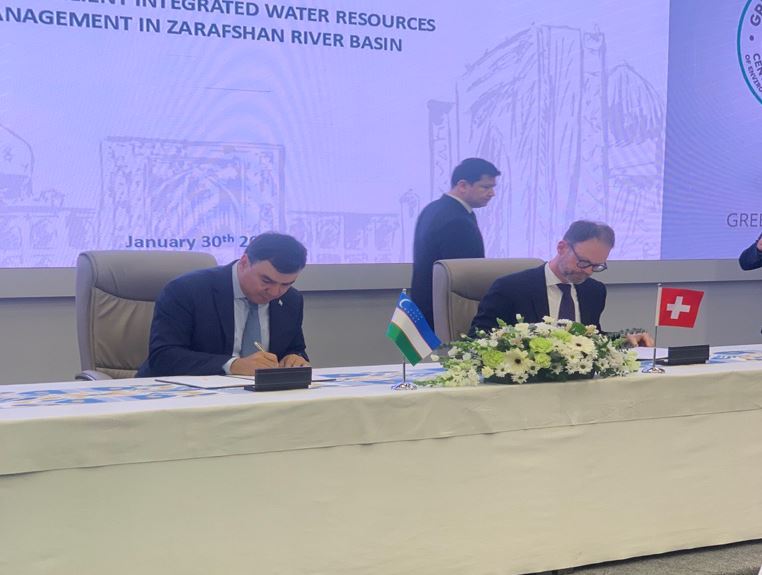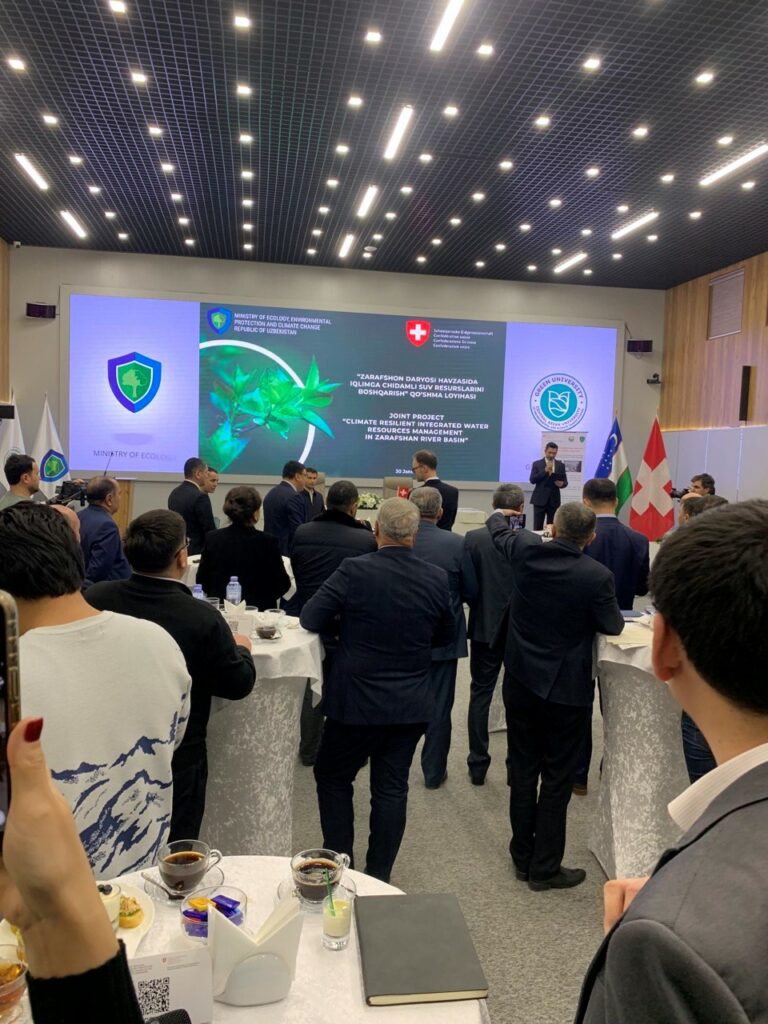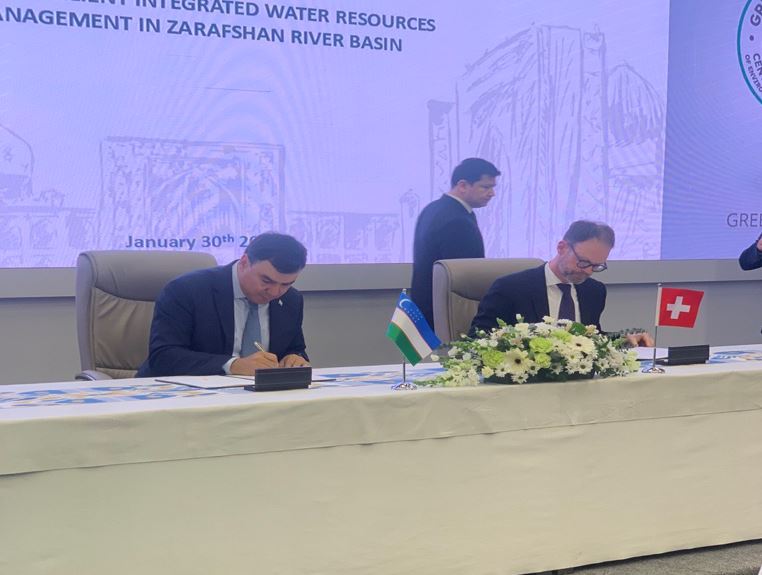On January 30, 2025, the official launch ceremony of the project “Climate-resilient integrated water resources management in the Zarafshan River basin” was held, implemented with the support of the Government of Switzerland with the participation of the Ministry of Ecology, Environmental Protection and Climate Change of the Republic of Uzbekistan jointly with the Embassy of Switzerland in the Republic of Uzbekistan.

As noted, today the climate is changing significantly and the consequences of its change are already being felt: the weather is becoming more unstable, the air temperature is rising, the hydrological regime is changing, adverse weather events are increasingly observed – drought, mudflows, heat and cold waves, strong winds, intense precipitation and dust storms. Many developing countries that do not have sufficient social, technological and financial resources to adapt are suffering from the consequences of climate change today. Millions of people are already facing water and food shortages, as well as increasing climate risks that threaten public health.
Zarafshan is a river flowing through Asia, an ancient tributary of the Amu Darya. The river is fed mainly by precipitation (snow, rain) and ice of the Zarafshan glacier. Flowing through the territory of Tajikistan, it crosses the border of Uzbekistan, turns to the northwest, creating a unique oasis where the city of Samarkand is located.
The project is aimed at improving the standard of living and well-being of the population in the Zarafshan River basin by introducing innovative and climate-resilient water management methods, noted the Minister of Ecology, Environmental Protection and Climate Change of the Republic of Uzbekistan, Mr. A. Abdukakharov, in his speech.
Switzerland has long been active in Central Asia in the field of water diplomacy, promoting sustainable water management and strengthening dialogue between countries in the region. It plays a key role in promoting an integrated approach to water issues, helping the region cope with climate challenges and ensure long-term water security.
“By strengthening data collection and management systems, promoting innovative low-cost monitoring devices and leveraging Swiss expertise in hydrology, we aim to provide farmers and policymakers with the tools they need to make informed decisions,” said Ambassador of Switzerland to Uzbekistan K. Obolensky.
The project will be implemented by Caritas Switzerland (CACH) in partnership with the Regional Environmental Centre for Central Asia (CAREC).
The event was also attended by employees of the Swiss Embassy, representatives of the Ministry of Ecology, and employees of governmental and non-governmental organizations.

The initiative also brings together international expertise, including MeteoSwiss and Hydrosolutions GmbH, to promote sustainable water management and strengthen regional cooperation for climate resilience.
Following the event, relevant agreements were signed, laying the foundation for the project. It is expected that within the framework of the initiative, modern methods of water resource management will be developed and implemented, which will improve their availability and efficiency of use in the conditions of a changing climate.
This project is an important step in the development of the water sector in Uzbekistan and serves as an example of successful international cooperation in the field of adaptation to climate change.

